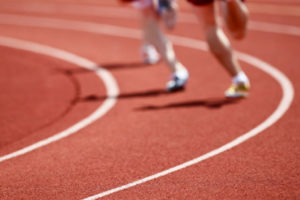The concept of training as a team leans itself to everyone attending and performing the same programme. This means that everyone will see the benefit of the team effort correct? Well perhaps not. Team performance depends on individuals performing at their best as well as complimenting each other. Depending on the sport the importance of individual versus team priority will be varied. Clearly the importance of team discipline and coordination is far more important in Rugby union’s defensive line than it is in cricket, when the individual batting or bowling is most important in the team outcome.
Why might team members need different training programmes?
Each individual within a team sport needs help to perform at their personal best and then integrate this into the team. So should this be considered in the team’s training programme? It is well understood that each individual is unique. This means they carry their own specific genetic potential, muscular and cardiovascular physiology plus unique psychology. This may mean they need personalised programmes within a team environment. One person may respond well to short high intensity training, another to more steady but longer training or one person may benefit from altitude training when the other becomes sick and loses fitness. If both these athletes are part of a cycling team then altering their training to be individually specific maybe easy. But what if these two athletes are to make up the same rowing crew, what then do you do to their programmes? The key may be to use supplementary training sessions that can be tailored to the athlete’s specific needs. One athlete could partake in additional resistance training whilst the other continues with lower level cardiovascular training. Compromise may then be necessary when training sessions must include all of the team.
How do you identify these individual needs?
This is a tricky decision, identifying athlete’s sporting strengths and weaknesses is a key challenge for any coaching team. After analysing this information the coaching team then has to decide which aspects to work on. Do you try to boost the athlete’s strengths to give them the edge over others? Or do you try to eliminate weaknesses to prevent these being exploited? Data analysis could give some clues as to which athletes appear to respond to which types of training. Sports teams invest heavily in this kind of data collection and analysis. However, the athlete has an incredible self-analysis tool inbuilt already, their own brain. The human brain is being constantly updated on the state of the body and learns patterns quickly. It has a data collection set far in advance of any tests possible from external analysis and has learnt about the specific individual from birth! The more elite athlete is likely to have a great self-perception on how they feel and what has worked for them in the past. Utilising this information could be an easy step in tailoring programmes to boost the individual within the team. When children are developing then it may help to be involved in many different sports. Having a lot of trial and error and different experiences may educate them in problem solving and how to get the best out of their own psychology and physiology. Considering the whole person in sports performance as well as in health care may give everyone in the team a boost in outcome!




